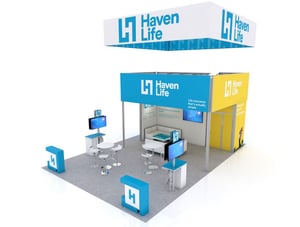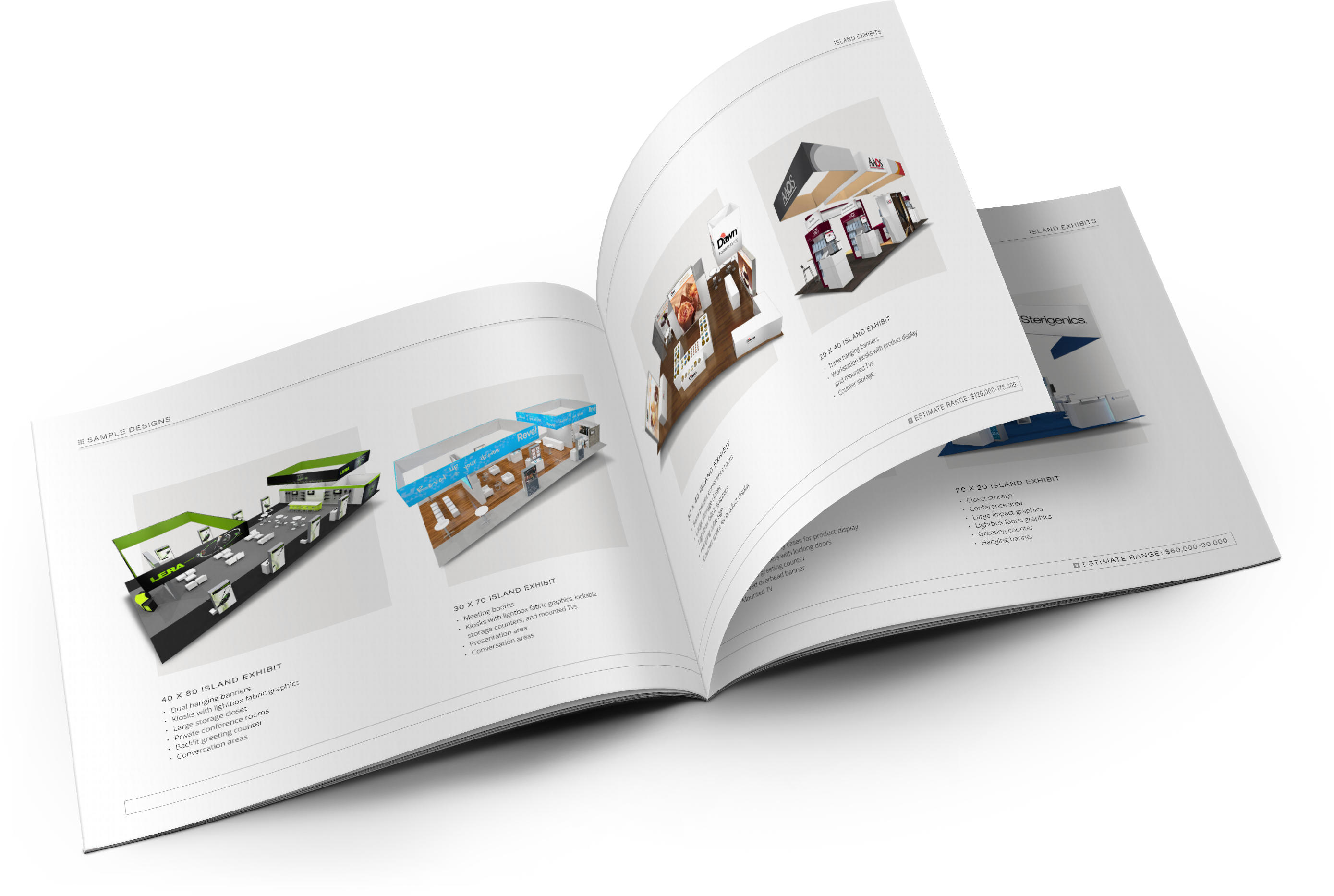Sales qualification is a game of questions even when you are standing in your trade show booth at an event. Unless you ask the right questions, you won't uncover the right needs. Unless you ask the right questions, you won't understand the right problems to solve. But there's an art to asking sales questions. Which is why I'd like to share these tips for asking more effective sales qualification questions. Here they are:
1. Ask permission
In some situations, it's understood that you're there to gather information. In other situations, it's appropriate to show respect by asking permission to ask questions.
Example question: "May I ask you some questions about your business?"
This may be a rhetorical question, but it's worth asking anyway.
2. Start broad, and then get specific
Broad, open-ended sales questions are a good way to start gathering information. They put your prospect at ease because they allow any type of response.
Example question: "Could you tell me about your business?"
This is a non-threatening way to begin. Listen to what your prospect says and what she omits. Both will suggest areas to explore in greater depth, such as, "Could you tell me more about how absenteeism impacts your bottom line?"
3. Build on previous responses
Any good interviewer knows that the most logical source of questions comes from the interviewee's responses. Dovetail your questions with the responses by listening for key words.
Example question role-play:
[Prospect] "I own six flower shops that specialize in large event decorating."
[Salesperson] "You specialize in large events. Why did you choose that niche?"
[Prospect] "Lower overhead. I can work out of a warehouse rather than a storefront. I don't have to maintain perishable stock; I order in large quantities only when needed, which keeps my prices down."
[Salesperson] "What do you mean by large events? How would you define that? What are the minimum orders?"
4. Use the prospect's industry jargon, if appropriate
If you're talking to an expert, show your expertise by sounding as if you've spent your whole life in his industry. If you're talking to a neophyte, don't embarrass him with your technical jargon. This is especially true in retail sales in which customers look to salespeople for guidance, not confusion.
Every field has its own jargon, and you may be an expert in yours; however, your prospect may not be as well versed as you. Avoid questions that will confuse your prospect or worse, make him feel inferior.
Example question not to ask: “Was the baud rate of your present system satisfactory?”
Example question to ask: “Were your telephone transmissions of data fast enough?”
5. Keep questions simple
If you want useful answers, ask useful questions. Convoluted or two-part questions should be avoided. Ask straightforward questions that cover one topic at a time. It’s best to ask for one answer at a time.
Example question not to ask: “What do you think about the marketing plan and will the new ad campaign confuse customers and would that confusion actually be beneficial to the long-term product growth?”
This will not produce a meaningful answer. If you ask a two-part question, people tend to either answer the second part only or only the part they were interested in or felt safe with. Ask one question at a time!
6. Use a logical sequence for your questions
Prospects like to know where your questions are headed. If they can't tell, they may suspect you're manipulating them. By following keywords and asking sales questions in a logical order, you will keep your intent clear and build trust.
7. Keep questions non-threatening
Start off safe, general, and non-threatening. That means asking open-ended questions that don't touch on sensitive subjects. Later, after you have built up trust -- and when it is appropriate -- you can ask about financial ability, business stability, credit rating ... anything relevant.
8. If a question is sensitive, explain its relevance
It makes sense to justify a sensitive question to your prospect. After all, she has a right to know why you are asking -- but then again, don't be afraid to ask your prospect tough questions.
9. Focus on desired benefits
Many prospects will not know all the benefits of your product or service. Therefore, don't ask them what benefits they are looking for; tell them what benefits will be theirs! When you ask them what they want, have them generalize about the improvements they would like to see.
If you were to ask a prospect, “How do you expect a computer to streamline your office?” you may make her feel ignorant. She has never owned a computer, so she probably has no idea of all its uses. It would be better to ask what general improvements she would like to see.
Example question: “What are some of the duties in the office that you find tedious and time consuming?”
This will free her of needing computer knowledge to answer the question. She’ll answer: “The payroll, accounts receivable, accounts payable,” and so on. You'll then have the information you need to recommend the hardware and software.
10. Maintain a consultative attitude
Remember, you're a liaison between your company and your customers; you are a consultant. As such, you want to question your prospect in a way that will yield the maximum amount of information with the least effort. To do so, take the pressure off the questions.
Ask them in a relaxed tone of voice. Give time for the answers, even if it means sitting quietly and waiting. Don’t be in a hurry to get to your next appointment. The investment you make in time now will pay off handsomely when the prospect evolves into an annuity.
11. Carefully navigate transitions
Good transitions are a crucial skill in a salesperson's conversational arsenal. If you veer from, "How have you tried to solve this problem in the past?" to "And what's your budget for this solution?" you risk giving your prospect whiplash at how quickly you took the conversation from their pain points to your budgetary concerns.
Instead, work in a transitional question.
Example question: "Was budget a barrier in solving this problem previously?"
This bridges the gap between solution sourcing and the prospect's current budget. It keeps them feeling supported, while giving you the information you need about the feasibility of their budget.
12. Don't ask "Yes" and "No" questions
The worst thing that could happen to a salesperson during this part of the process is they ask a question and get a one-word answer in response.
Example questions not to ask: "Are you happy with your current vendor?" "Did your boss support that decision?" or "Is this a priority for you now?"
Instead, frame your questions in a more exploratory way.
Example questions: "Tell me about your experience with your current vendor." "How did your boss support or not support this decision?" and "Why is this a priority for you now?"
These small tweaks turn dead-end questions into new avenues for discovery.
13. When in doubt, ask, "Why"
Not getting the answers you need? Ask, "Why?" For example, if you ask a prospect, "Have you tried to solve this problem in the past?" and they reply with, "Yes," respond by asking, "Why didn't it work?"
"Why" questions can turn simple answers into rich ones that keep your conversation going. That way, you get the information you need to help your prospect and determine if they're the right fit.
14. Ask who else you should speak with
In the discovery or qualifying process, it's important to keep questions focused on benefiting and solving for the prospect you're speaking with at the moment.
Avoid asking how the prospect's pain points stack up to those of another department's. That's secondhand information, and it shifts prospect focus to their colleagues instead of how the issue at hand affects them.
Instead, at the end of your questioning, ask if there's anyone else you should speak with.
Example questions: "Is there anyone else this challenge affects?" or "Is there anyone else you think I should speak with?"
If the answer to those questions is, "Yes, you should speak to Accounting," politely ask, "Would you mind introducing me to the right person in that department?"
This allows you to ask fresh questions, and get honest, first-hand responses from other stakeholders at the company.
15. Resist the temptation to pitch
When the qualifying questions have gone well, your prospect is putty in your hands, and you know they know it's a good fit, it's tempting to make your pitch, but don't.
You have one shot to make a great pitch, and you don't want to blow it by rushing the process. Thank them for their time, give them your next steps and timeline, and take a few days (or, at least, a few hours), to craft a demo or strategy that thoughtfully addresses their pain points and presents a solution.
Qualifying questions are arguably one of the most important parts of the sales process. They tell you if you can help your prospect, and provide the intelligence you need to know exactly how to help them. Don't rush it, be thoughtful in your questioning, and reap the benefits of a question well-asked.
Written by Tony Alessandra - @TonyAlessandra- https://blog.hubspot.com/sales/10-tips-ask-sales-questions-si





